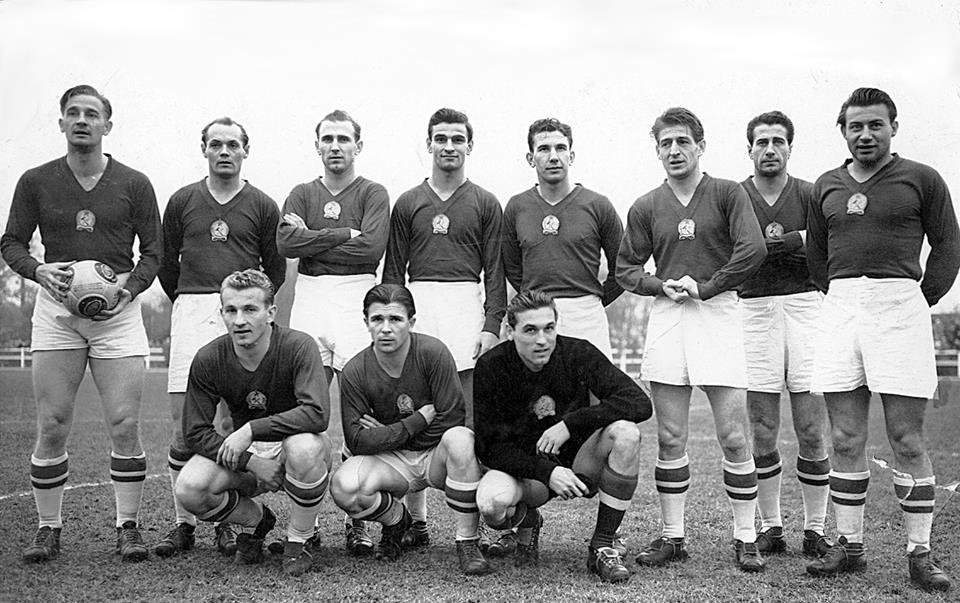Change language:
He is the most famous Hungarian – Ferenc Puskás would be 93 years old – photos, videos

Hungarian scientists, athletes, musicians, composers, inventors and many others did and discovered great things from the Rubik’s cube to the Vitamin C. However, Ferenc Puskás, is the most famous among all of them, his name is well-known from Argentina to Japan and from Australia to the United States. Why?
Born to a German (Danube Swabian) family in a suburb, Kispest, near Budapest, he showed great talent for football already when he was young. Therefore, even though he did not reach the minimum age (12), he could play in the local club with his childhood friend, József Bozsik who became a member of the Hungarian Golden Team, as well. He made his first senior appearance for Kispest in November 1943 in a match against Nagyváradi AC. It was there where he got the nickname “Öcsi” or “Buddy” because he was not too tall and was very young, only 16 by then.
Kispest became the team of the Hungarian Army during the Communist dictatorship, but he continued to play there. The club acquired the best Hungarian players of that time, and with the help of Puskás, they won five Hungarian League titles. He also finished as a top goal scorer in the league in 1947–48, 1949–50, 1950 and 1953, scoring 50, 31, 25 and 27 goals, respectively. In 1948, he was the top goal scorer in Europe.
- Congratulations! Budapest’s Puskás Aréna became the Stadium Of The Year 2019!
- The life of Ferenc Puskás will be made into a musical
- Puskás posthumously honoured with World Sports Legends Award
In the Hungarian team, he debuted in 1945 against Austria when they won 5:2. He played 85 games and scored 84 times for Hungary. Together with Zoltán Czibor, Sándor Kocsis, József Bozsik, and Nándor Hidegkuti, he formed the nucleus of the Golden Team that was to remain unbeaten for 32 consecutive games between 1950 and 1954.

During that run, they became Olympic Champions in 1952, beating Yugoslavia 2–0 in the final in Helsinki. Puskás scored four times at the Olympic tournament, including the opening goal in the final. They also defeated England twice, first with a 6–3 win at Wembley Stadium on the “match of the century” and then 7–1 in Budapest. Puskás scored two goals in each game against England. Here are the highlights on what happened in the Wembley Stadium.
Unfortunately,
they lost first against West-Germany in the finals of the 1954 Switzerland Football World Cup.
HERE we summed up what happened in Bern while below you can watch a video about the highlights of the Hungarian team in the world cup:
After the revolution of 1956, some players decided not to return home. Among those was Puskás who went first to Italy then to Spain but could not play because the FIFA banned him from playing for 18 months. During that time he managed to get his family out from Hungary occupied by the Soviet forces. However, after the ban finished and even though he was overweight, he could join Real Madrid so, at the age of 31, the second part of his career began.
He helped Real win La Liga five times in a row between 1961 and 1965 and the Copa del Generalísimo in 1962. He scored both goals in the 2–1 victory over Sevilla FC in the Copa final. In 1962, Puskás took Spanish nationality and subsequently played four times for Spain. Three of these games were at the 1962 World Cup. He finished his professional career at the age of 39 in 1966.
Here is a cartoon movie about Ferenc Puskás:
As a coach, he worked in 5 continents. In 1971, he guided Panathinaikos of Greece to the European Cup final, the only time a Greek club has reached a European final to date. Despite his extensive travels, his only other success came with South Melbourne Hellas, with whom he won the Australian National Soccer League title in 1991. In 1993, he took charge of the Hungarian national football team for four games, including a 4–2 friendly victory against the Republic of Ireland in Dublin, where Hungary came from two goals down to beat their opponents eventually.
Below he does the first kick against Australia in 1997:
In 2000, he was diagnosed with Alzheimer’s disease, spent his last years in hospitals and died on 17 November 2006 of pneumonia.
Today not only streets and football clubs bear his name but also the new Puskás Aréna in Budapest. Furthermore, asteroid 82656 Puskás, discovered by Krisztián Sárneczky and Gyula M. Szabó was also named in his honour in 2001.







